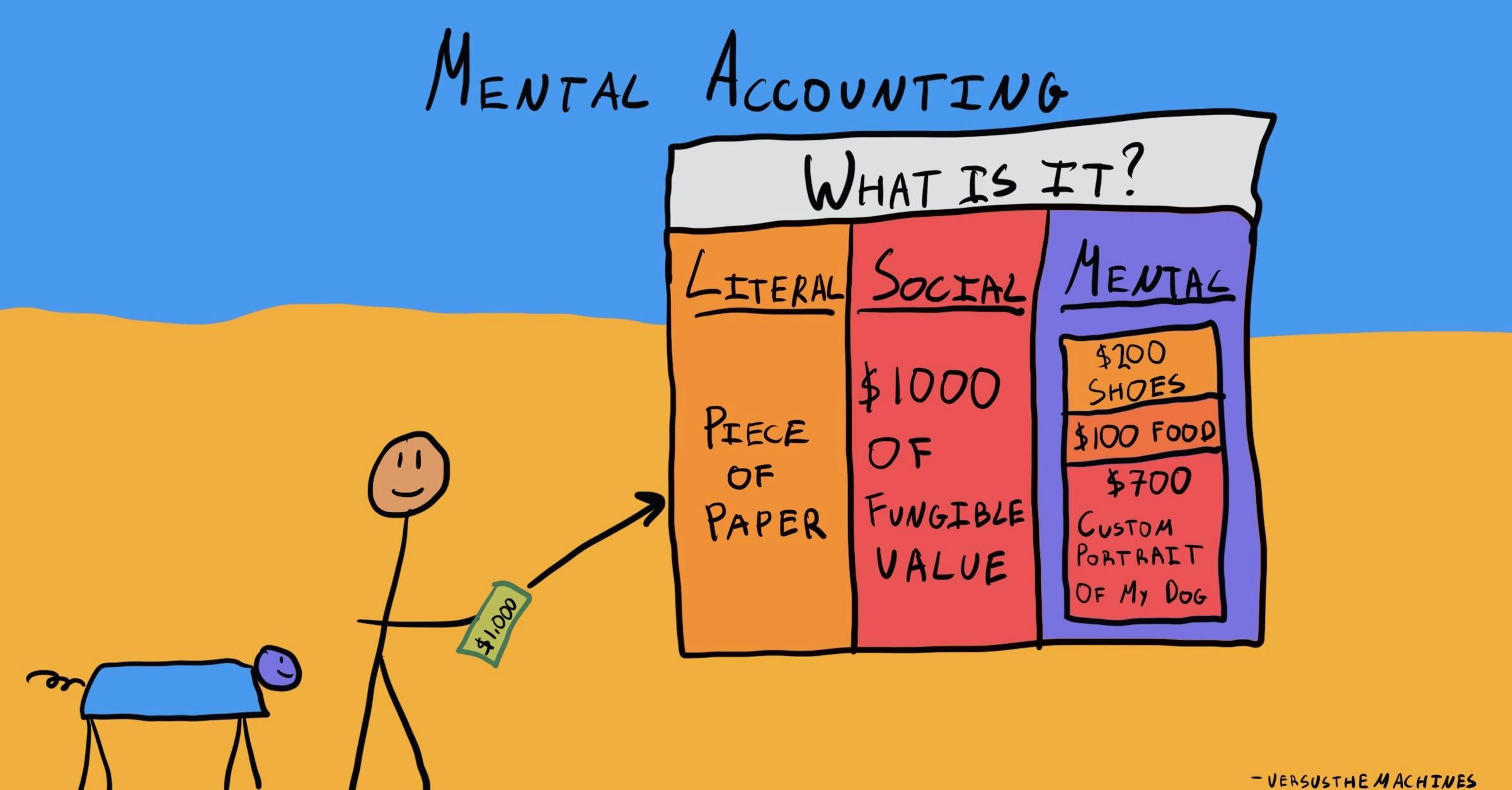People often make decisions on the basis of a mental accounting. David orders the Uber Banana Split from the menu.

Mental Accounting The Decision Lab
People often make decisions on the basis of a mental accounting.

. One facet of this accounting is making a decision based on the way a problem was posed. In addition to sliced bananas and strawberry and pineapple pieces it contains 9 scoops of different. Principles of mental accounting demonstrate that decisions can be influenced by the way a problem is posed.
Mental accounting often leads people to make irrational investment decisions and behave in financially counterproductive or detrimental ways such as funding a low-interest savings account while. A extended problem solving. 15 People often make decisions on the basis of mental accounting.
Previous Post Previous People often make decisions on the basis of a mental accounting. It is also known as the two-pocket theory. It describes the process whereby people code categorize and evaluate economic outcomes on the basis of certain subjective criteria.
One facet of this accounting is making a decision based on the way a problem was posed. A framing B the sum-cost fallacy C loss aversion D positioning Answer. Fungibility of course said Thaler is the notion that money has no labels.
One facet of this accounting is making a decision based on the way that a problem was posed. 5 A customer buying an unfamiliar product that carries a fair degree of risk would most likely engage in what type of problem solving. Thus after considering this psychological fact of people the present study tries to explore the importance of mental accounting in purchase decision.
David Laibson an economics professor at Harvard has conducted research which suggests that people do fairly complex mental accounting whenever they make decisions and count future rewards or efforts as half as important as present rewards or efforts. This is called _____. B the sum-cost fallacy.
One facet of this accounting is making a decision based on the way a problem was posed. 15 People often make decisions on the basis of mental accounting. Every human being allocates their budget mentally before attempt a purchase.
A framing B the sum-cost fallacy C loss aversion D positioning Answer. As Thaler put it the effect of winning a 300 football pool should be the same as having a stock in which 100 shares increase by 3 per share or having the value of your pension increase by 300. The Consequences of Mental Accounting.
This is called _____. People often make decisions on the basis of a mental accounting. However this process can lead to losses.
One facet of this accounting is making a decision based on. One facet of this accounting is making a decision based on the way a problem was posed. This is called _____.
Mental accounting leads to a behavioural bias that can influence the decisions that individuals make. D mental accounting 14 People often make decisions on the basis of mental accounting. People often make decisions on the basis of mental accounting.
A company can make money if it sells small amounts of items that only a few people want if the company sells enough different items. This is called _____. D mental accounting 14 People often make decisions on the basis of mental accounting.
This is called _____. One facet of this accounting is making a decision based on the way a problem was posed. One facet of this accounting is making a decision based on the way a problem was posed.
This is called ____. One facet of this accounting is making a decision based on the way a problem was posed. One facet of this accounting is making a decision based on the way a problem was posed.
People often make decisions on the basis of mental accounting. 14 People often make decisions on the basis of mental accounting. Mental accounting is a type of framing where.
A framing B the sum-cost fallacy C loss aversion D positioning. Will NOT INCLUDE questions with numbers or proper names people places brands Consumer Behavior 10e Solomon Chapter 8 Decision Making. This is called ________.
This is called ________. People often make decisions on the basis of a mental accounting. This is called People often make decisions on the basis of mental accounting.
One facet of this accounting is making a decision based on the way a problem was posed. People often make decisions on the basis of mental accounting. One facet of this accounting is making a decision based on the way a problem was posed.
B limited problem solving. Mental accounting has emerged as a new area of behavioral finance which attempts to study the division of money that people make while taking an economic decision. People often make decisions on the basis of a mental accounting.
People is aware about mental accounting. Often people tend to place varying values on the same amount of money based on their preferences. One facet of this accounting is making a decision based on the way a problem was posed.
Mental accounting plays a decisive role in purchase decision making. One facet of this accounting is making a decision based on the way a problem was posed. In mental accounting people tend to classify their money and put them in.

404 Not Found Neuroscience Brain Facts Brain Science

There Always 2 Sides To Every Story Judge Quotes Dont Judge People Quotes People Quotes

Tips For Developing A Mission Statement Boardsource Mission Statement Examples Mission Statement Mission Statement Template
0 Comments